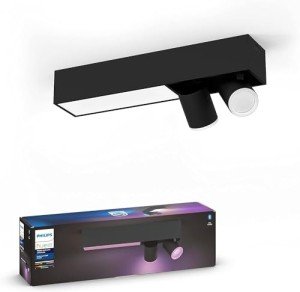Five Reasons To Join An Online Buy Industrial Lighting UK Shop And 5 Reasons You Shouldn't
Buy Industrial Lighting in the UK: A Comprehensive Guide
In the ever-evolving world of industrial operations, sufficient lighting is essential for security, performance, and performance. In the UK, companies deal with distinct challenges that require specialized lighting options customized for industrial environments. This short article supplies an in-depth check out the considerations for purchasing industrial lighting, the types offered, and some frequently asked questions to simplify the buying process.
Comprehending Industrial Lighting
Industrial lighting incorporates a large range of fixtures, from high bays used in warehouses to explosion-proof lights for harmful locations. Selecting Lighting And Lamps For Sale can boost exposure, lessen security threats, and even minimize energy costs.
Secret Considerations for Industrial Lighting
When buying industrial lighting, numerous factors require to be considered:
- Type of Facility: Assess whether the lighting is for a factory, warehouse, or an outdoor location.
- Function: Determine whether the lighting is for general lighting, task-oriented activities, or safety/security.
- Energy Efficiency: Opt for energy-efficient lights to reduce functional costs.
- Regulative Compliance: Ensure that the lighting satisfies UK security and quality requirements.
- Toughness: Industrial environments can be extreme; lighting products need to withstand conditions like wetness, dust, and vibrations.
- Setup Considerations: Understand the requirements for mounting fixtures in high or hard-to-reach areas.
Types of Industrial Lighting
There are numerous types of industrial lighting fixtures offered in the UK. Below are some of the most common types:
Table 1: Types of Industrial Lighting
Type
Description
Best Use Cases
High Bay Lights
Used for big spaces with high ceilings, such as storage facilities.
Storage facilities, factories
Low Bay Lights
For lower-ceiling environments where general lighting is needed.
Retail areas, manufacturing
Flood Lights
Offers broad, even light; perfect for outdoor settings.
Parking lots, outdoor offices
Task Lights
Adjustable and movable; focus light on specific locations.
Assembly lines, evaluation locations
LED Strip Lights
Flexible and energy-efficient.
Shelving, signs
Explosion-Proof Lights
Developed for locations where flammable products are stored or utilized.
Chemical plants, oil refineries
Benefits of LED Industrial Lighting
LED innovation has changed industrial lighting, using numerous benefits:
- Energy Efficiency: LEDs consume substantially less power compared to traditional incandescent or fluorescent lighting.
- Long Lifespan: LED bulbs can last as much as 25,000 hours or more, dramatically lowering upkeep costs and downtime.
- Low Heat Emission: Unlike traditional lights, LEDs emit minimal heat, which can improve safety, especially in hot work environments.
- Adaptability: Available in different colors and strengths, making them appropriate for varied applications.
- Immediate Start-Up: LED fixtures provide full brightness immediately, eliminating the flickering delay connected with some standard lights.
Acquiring Industrial Lighting in the UK
When sourcing industrial lighting in the UK, businesses have various alternatives. Establishing a clear getting technique will allow buyers to make educated decisions.
Steps for Purchasing Industrial Lighting
- Assessment of Requirements: Evaluate the particular lighting needs based on the type of industrial facility and activities performed.
- Budgeting: Determine the spending plan for buying not just the fixtures however likewise setup and maintenance.
- Research Suppliers: Investigate credible suppliers that specialize in industrial lighting options.
- Examine Product Quality: Look for certifications and reviews to guarantee item resilience and compliance.
- Consider Sustainability: Opt for suppliers that supply eco-friendly lighting solutions.
- Installation Support: Check if the supplier provides setup services or guidance.
Where to Buy Industrial Lighting in the UK
Here's a list of suggested suppliers and merchants in the UK:
- LightHouse: Specializes in a wide variety of industrial lighting services and uses both online and physical shopping.
- ElectricalDirect: A comprehensive source for all kinds of industrial lighting fixtures and components.
- Amazon UK: Features a wide range of industrial lighting products ranging from spending plan choices to high-end solutions.
- B&Q:&A popular home improvement store that likewise brings a choice of industrial-grade lighting.
- eBay: A marketplace where users can find new and pre-owned industrial lighting products at reduced costs.
Regularly Asked Questions (FAQs)
1. What is the distinction between high bay and low bay lights?
High bay lights are developed for spaces with ceilings greater than 15 feet, supplying intense lighting for big areas. Low bay lights, on the other hand, are appropriate for spaces with lower ceilings, normally varying from 8 to 15 feet.
2. How do I understand which kind of industrial lighting I require?
Assess your facility's height, design, and the specific tasks being performed. Engaging with a lighting specialist can likewise supply tailored guidance based on your special needs.
3. Are LED lights worth the investment?
Yes, while LED lights may have a higher in advance expense, their energy effectiveness, longevity, and decreased upkeep needs normally cause significant savings in time.
4. What regulatory standards should industrial lighting meet in the UK?
In the UK, industrial lighting must comply with British Standards (BS), that include guidelines on health, security, and efficiency requirements for lighting systems.
5. Can I install industrial lighting myself?
It depends on your expertise and regional policies. While some organizations might go with DIY installations, it's frequently advisable to employ a qualified electrician to ensure security and compliance.
Buying industrial lighting in the UK needs thoughtful consideration of various elements, from the type of facility and lighting needs to budget plan and long-term efficiency. Businesses can reap the benefits of enhanced security and performance by thoroughly assessing product alternatives and engaging with trustworthy suppliers. As the demands of the industrial landscape progress, staying notified on lighting innovations will guarantee that companies stay competitive and compliant.
